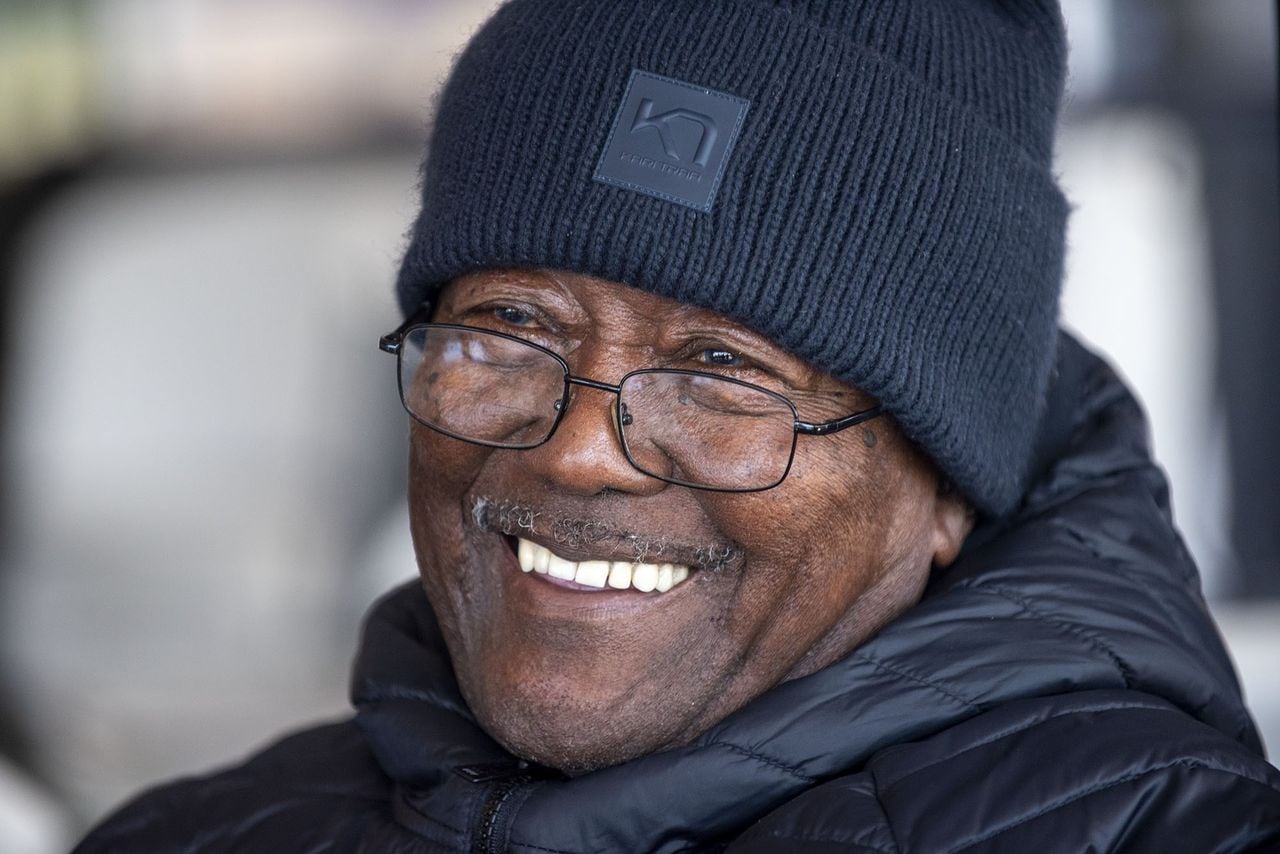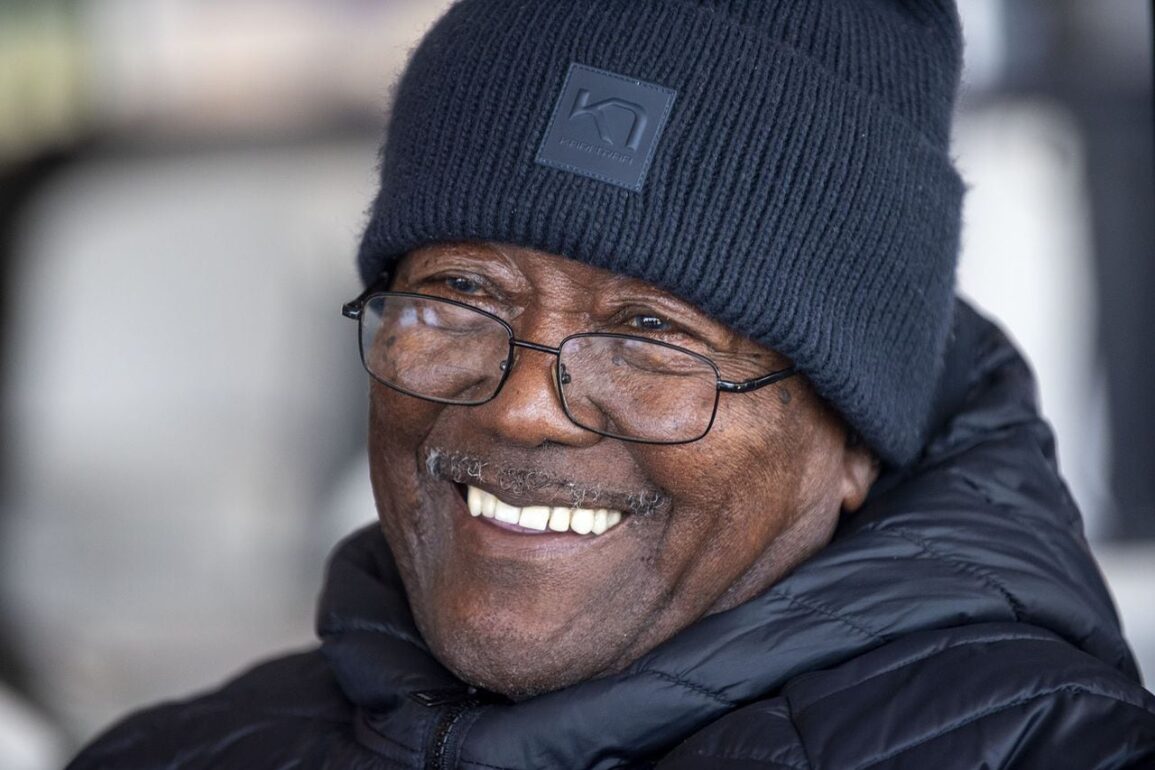
John Coleman is 89. They called him “Hen” in prison, for reasons he can’t quite recall, or doesn’t wish to share.
He smiles and shrugs, as is his way, and lets that grin say what he can’t, or won’t. It’s armor.
If anybody knows the need for armor it’s Coleman. He stood 5-foot-5 when he went to prison before the Berlin Wall fell, sentenced to life without the possibility of parole under habitual offender laws of the day.
“They put us in there to die. They treated us like we were dead already,” Coleman said last month, from his new apartment in Birmingham. “But God wasn’t ready for us.”
Alabama’s overcrowded prisons are filled with aging inmates who have little hope of getting out, and the prison population is aging faster than the rest of us. In November there were 2,351 prisoners older than 60, more than 6,000 over 50.
Cam Ward, director of the Alabama Bureau of Pardons and Paroles, knows it is a problem.
“Our population in DOC custody is aging much faster than most other Southern states,” he said. “And it’s due to the lack of people being granted parole.”
Many older inmates are not even eligible for parole. They were sentenced under antiquated habitual offender laws that regularly imposed sentences of life without parole, even for nonviolent offenses, or crimes in which no one was hurt, as in the case of Coleman.
Coleman was not paroled, because of such a sentence. He was released last year on a Rule 32 petition with help from lawyers at Alabama Appleseed, an organization that works to free some inmates who have served long terms under the Habitual Felony Offender Act, and to find them a path back to the free world.
He is one of a few lucky ones, even if he doesn’t always understand why.
“I can’t believe it,” he says, over and over. “I just can’t believe it.”
Like it or not the parole board, which now denies paroles for nine out of 10 eligible people, is acting within the law, said Ward.
But most people sentenced as Coleman was will never get a chance to come before that board. They are trapped by old laws that make parole impossible.
“You can’t get out,” Ward said. “You can’t get a hearing.”
He said a 2015 change in law made it far more difficult to classify people as habitual offenders, to keep them forever. But those sentenced under the old laws are stuck.
Even older inmates who are eligible for parole, those with shorter or more lenient sentences, rarely come before that board for a hearing, and even more rarely get their freedom.
Last fiscal year 185 inmates over the age of 65 were given parole hearings, according to ABPP numbers. Just six of them were granted parole. The parole board rejected all 10 people over 80.
Coleman was released because of the work of his advocates. Several years ago he wrote a letter to Appleseed asking for help, and lawyers there researched his case and took it to court.
Prosecutors did not object to Coleman’s release, and Jefferson County Circuit Judge Kechia S. Davis agreed the sentence handed to him in 1989 was disproportionate to those for similar crimes today. She noted in her order freeing him that his crimes did not result in injury to the victim, and that Coleman “exhibited profound rehabilitation.”
When Coleman was a young man – a lot younger than he is now, anyway, he was trouble, he admits. He drops his head as if in shame at the very mention of robberies and an assault charge he faced in the ‘70s. He whispers of his own foolishness.
But it was what he did on New Year’s Day of 1989 that cost him most of his life.
He had a gun, but no bullets, and pulled it on a woman outside a nightclub in Birmingham. An off-duty cop showed up soon, and Coleman’s life was forever changed.
Coleman backed away, pistol out. He took the woman with him. The officer later testified “that there was no question in my mind that he was physically forcing her to go with him.”
Coleman ultimately dropped the gun, when police backup arrived. It was unloaded. He was charged with robbery, kidnapping and illegal possession of a gun, convicted and sentenced to spend the rest of his life in prison.
He would pay the price for his crimes, and earn a good prison record while doing it.
Alabama would pay the cost of his punishment, along with his room and board, his cancer, dialysis, cataracts, wheelchair and the medication he required decade after decade.
The cost of keeping aged inmates in Alabama prisons is crippling, Ward said.
“The medical cost, the healthcare cost, that is the DOC backbreaker. I mean, that breaks their back,” he said.
It breaks the back of Alabamians, too.
The state is building $1.08 billion on one prison. It will spend another billion on a prison healthcare deal. That’s $897 for every person in Alabama’s workforce, with little hope of actually improving the system.
A U.S. Justice Department report in 2016 found that housing an aging inmate costs 8% more on average than housing those under 50, and federal prisons with the highest percentage of old people spent 14 times as much on medication as prisons with younger populations.
We have to ask ourselves why? Is retribution worth it?
The few older inmates who make it out of prison after long terms face different problems in the real world. They tend to have more illness and little money. Some have no family or support, and often finding a home or assisted living facility to take them is hard. Nonprofits like Appleseed and Redemption Earned, run by former Alabama Supreme Court Chief Justice Sue Bell Cobb, help some leave prison and get new starts.
“They put us in there to die They treated us like we were dead already.”
John Coleman, who got out of prison after 34 years behind bars in Alabama
Cobb works to help sick and aging inmates – clients, she calls them – get parole, which is often frustrating, but rewarding. The cost of keeping the old and sick behind bars forever exacts more than money.
“Some of them don’t even know they are there,” she said of aging prisoners lost to dementia and time. “They don’t know why they are in prison. Humanity requires we try to help those that are the least, the last and the lost on a given day at the Parole Board.”
It is a national problem, though Alabama’s callousness stands out. The Prison Policy Initiative refers to the growth of the aging prison population a crisis driven by “disastrous policy decisions in policing, sentencing, and reentry over roughly the last half-century,” and holding older people in prisons and jails is “particularly dangerous, if not outright deadly.”
Data from that group shows that people over the age of 65 have a low risk of re-offending, and are less likely than any other age group to be re-arrested after release.
“Most folks understand that when you’re old and infirm, you are significantly less likely to hurt anybody,” Cobb said. “The data shows that.”
So does a conversation – which is something the Parole Board almost never has with inmates.
It’s hard to fathom what Coleman missed through those 34 years. He went behind bars before the Tiananmen Square massacre, before the Gulf wars, before the World Wide Web was invented.
He missed the rise of the internet and cell phones, the Macarena and mom jeans and Ice Bucket Challenge. He missed the introduction of pre-cooked bacon, but has found it during his year of freedom.
It is a wonder of this world.
Coleman would be lost in time if Appleseed had not helped him find an apartment, a modest cell phone, help with ID and paperwork, friendship, and an introduction to this foreign, modern world.
In prison, when he learned his mother had died, he turned on the music of Sam Cooke and listened to “A Change is Gonna Come,” he said.
He cried.
In prison, when he learned his sister had also died, he felt so alone that he did not believe he could carry on. He turned again to Sam Cooke, and that song.
“I cried like a baby,” he said. But it carried him through.
Coleman, who has discovered YouTube since he left prison, opened that app on his Cricket phone in January, sitting in his apartment, a free man. He found a Sam Cooke video and pressed play.
There been times that I thought,
I couldn’t last for long,
But now, I think I’m able,
To carry on.
He listened. And he smiled.
I asked what the song meant to him.
“Everything,” he said.
I asked if he believed a change had really come.
“Yeah,” he said. “For me.”
John Coleman is almost 90. He was in Alabama prisons since before the Berlin Wall fell. Here he is, listening to the music that got him through. Not gonna lie, it sorta gets to me. pic.twitter.com/EsqcCVweTO
— John Archibald (@JohnArchibald) January 18, 2024
This post was originally published on this site be sure to check out more of their content.









